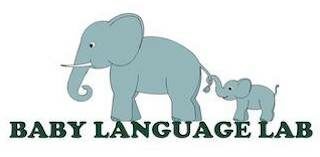Research in our lab is approved by the Research Ethics Board of the University of Manitoba. We are grateful for funding from SSHRC (Social Science and Humanities Research Council), and NSERC (Natural Sciences and Engineering Council), as well as internal funding from the University of Manitoba.
In Lab Studies – Preference Studies
Preference for Infant-directed Speech: How are infants’ preferences for the special properties of child-directed speech different across cultures and languages? (6 – 12 month olds)
We speak very differently to babies than we do to other adults — but this style of speaking varies across cultures and languages. Together with several laboratories in Europe we are examining how infants preference for this style of speech varies in different circumstances, languages and infant age.
Caregiver IDS and Infants’ preferences for novelty and familiarity (3 – 15 months)
Doctoral student, Sana Fekrazad, is examining how caregivers use infant-directed speech (IDS) and support infants’ exploration during play with familiar and novel toys. Her study, part of the large-scale ManyBabies5 (MB5) project, will explore how caregivers’ speech and behaviors differ between novel versus familiar objects, and how these interactions relate to infants’ preferences for novelty and familiarity. By combining video/audio recordings, experimental data, and caregiver-report questionnaires, her research bridges naturalistic play and structured tasks to better understand how caregiver communication—especially IDS—shapes early cognitive and language development.
In Lab – Observational & Questionnaire-Based Studies
Maternal Mental Health and Language (Maternal Caregivers and their child aged 3-6 years old).
Doctoral candidate Megan Gornik is examining the impact of maternal anxiety and parenting stress on mother-preschooler interactions by analyzing aspects of their behaviour, speech, and expression of emotions. In her Masters work with mothers experiencing depression, she found relationships between the emotional expressions of mothers and their children (e.g. mothers who sounded happier had children who sounded happier). She is currently extending this work to examine the impact of maternal anxiety on these interactions, using a combination of caregiver questionnaires and caregiver-child play sessions in the laboratory..
The Impact of Maternal Stress on Infant Development (8-12 months old)
This summer we will start recruiting mothers and infants in the 8–12-month age-range for school psychology Masters student Isabelle Hadley’s study examining the effect of maternal stress on maternal communication, infant cognitive and language development. Participants will fill out questionnaires online followed by a brief play session with their baby in our lab.
Home Recording Studies
Infant-directed speech in Farsi
Doctoral candidate Sara Montazeri is investigating the linguistic environment of Persian-learning infants in Iran, focusing on how caregivers communicate with infants in everyday settings. Using naturalistic recordings from dozens of Iranian families in Mashhad, her research has so far revealed that infants receive a significantly larger share of their overall language input from female speakers compared to male speakers, highlighting a strong gender imbalance in the caregiving environment. Additionally, her study finds that, similar to Western mothers, Persian mothers use significantly higher pitch, greater pitch variability, and longer utterances when addressing their infants compared to adults. Montazeri’s ongoing work with this rich data set offers important cross-cultural insights into how the linguistic environment and the acoustic features of Infant-Directed Speech shape early language development in non-Western contexts.
